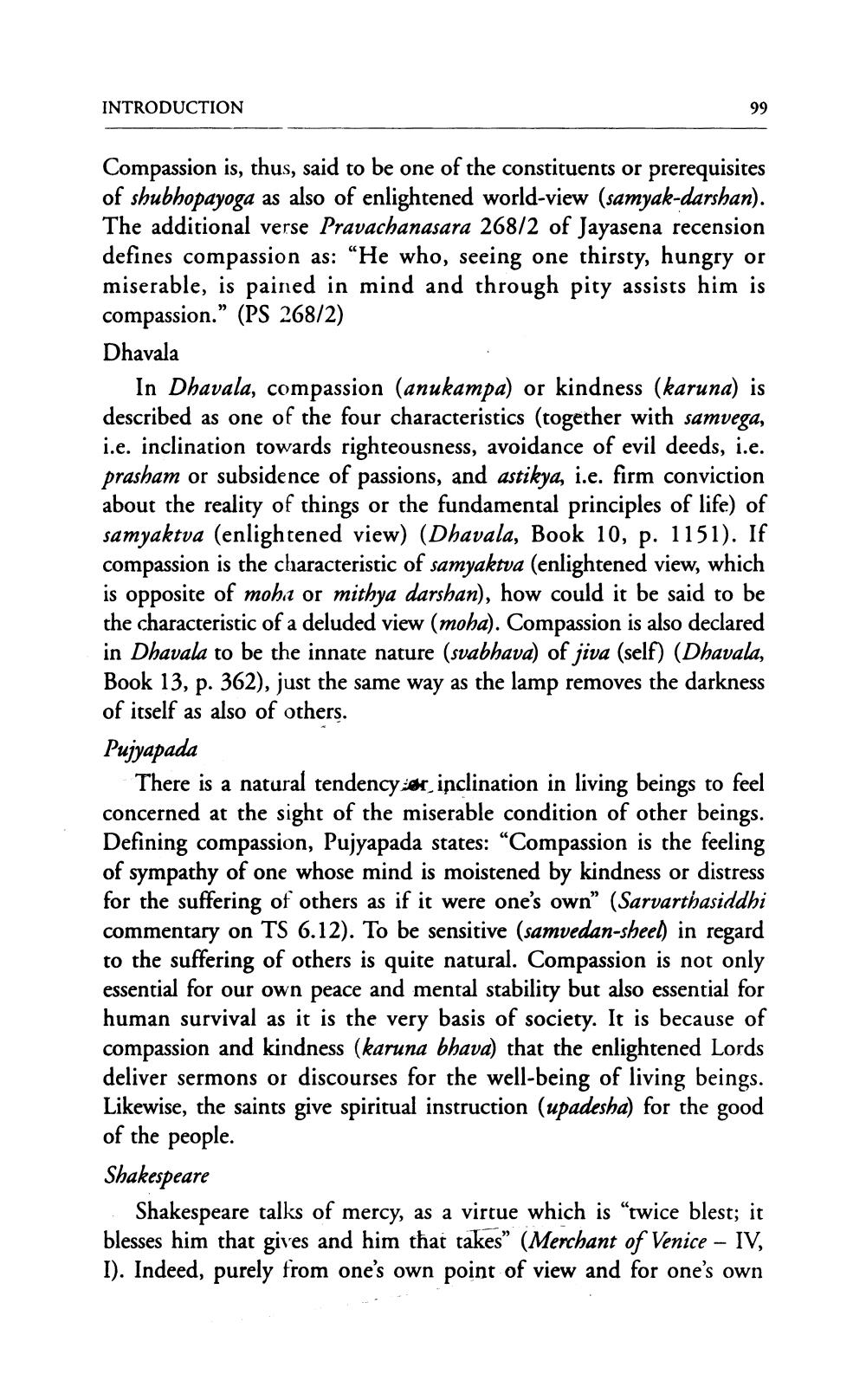________________
INTRODUCTION
99
Compassion is, thus, said to be one of the constituents or prerequisites of shubhopayoga as also of enlightened world-view (samyak-darshan). The additional verse Pravachanasara 268/2 of Jayasena recension defines compassion as: "He who, seeing one thirsty, hungry or miserable, is pained in mind and through pity assists him is compassion." (PS 268/2)
Dhavala
In Dhavala, compassion (anukampa) or kindness (karuna) is described as one of the four characteristics (together with samvega, i.e. inclination towards righteousness, avoidance of evil deeds, i.e. prasham or subsidence of passions, and astikya, i.e. firm conviction about the reality of things or the fundamental principles of life) of samyaktva (enlightened view) (Dhavala, Book 10, p. 1151). If compassion is the characteristic of samyaktva (enlightened view, which is opposite of moha or mithya darshan), how could it be said to be the characteristic of a deluded view (moha). Compassion is also declared in Dhavala to be the innate nature (svabhava) of jiva (self) (Dhavala, Book 13, p. 362), just the same way as the lamp removes the darkness of itself as also of others.
Pujyapada
There is a natural tendency or inclination in living beings to feel concerned at the sight of the miserable condition of other beings. Defining compassion, Pujyapada states: "Compassion is the feeling of sympathy of one whose mind is moistened by kindness or distress for the suffering of others as if it were one's own" (Sarvarthasiddhi commentary on TS 6.12). To be sensitive (samvedan-sheel) in regard to the suffering of others is quite natural. Compassion is not only essential for our own peace and mental stability but also essential for human survival as it is the very basis of society. It is because of compassion and kindness (karuna bhava) that the enlightened Lords deliver sermons or discourses for the well-being of living beings. Likewise, the saints give spiritual instruction (upadesha) for the good of the people.
Shakespeare
Shakespeare talks of mercy, as a virtue which is "twice blest; it blesses him that gives and him that takes" (Merchant of Venice - IV, I). Indeed, purely from one's own point of view and for one's own




